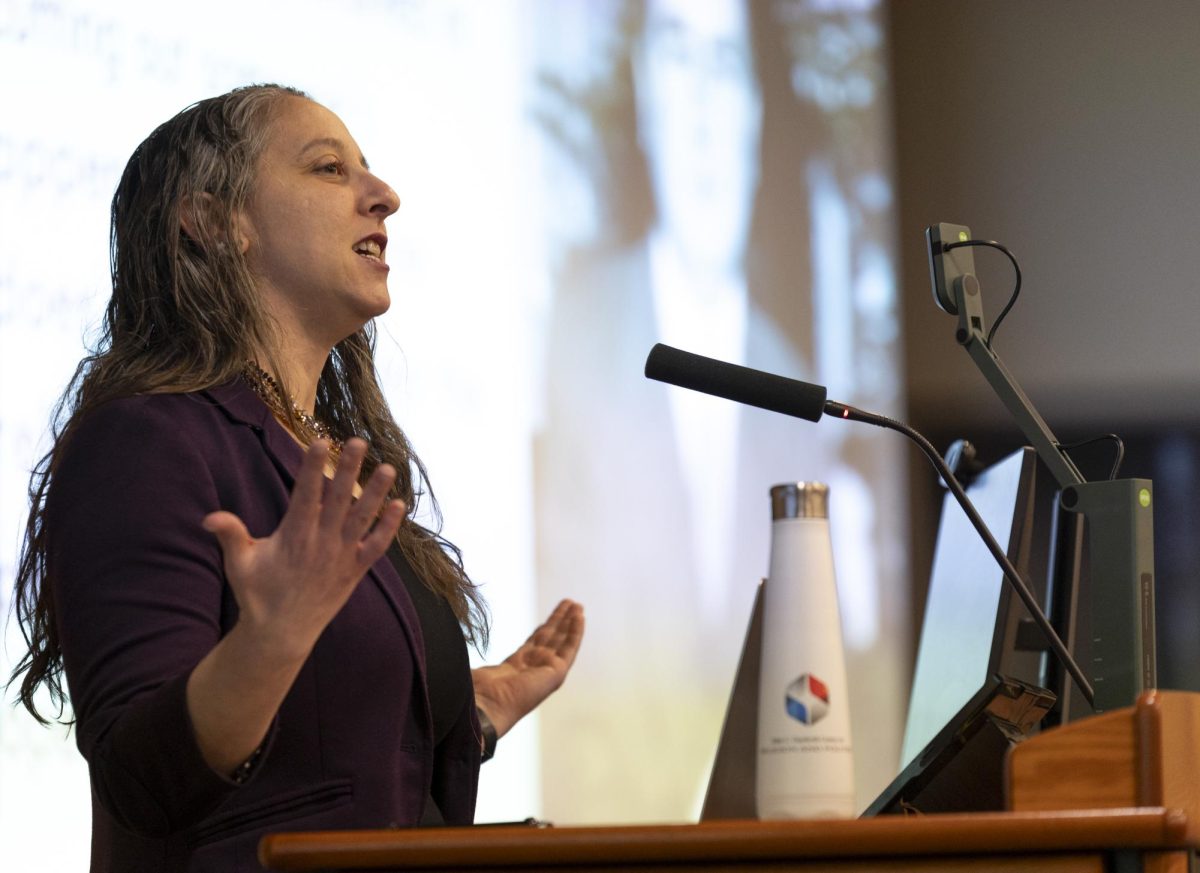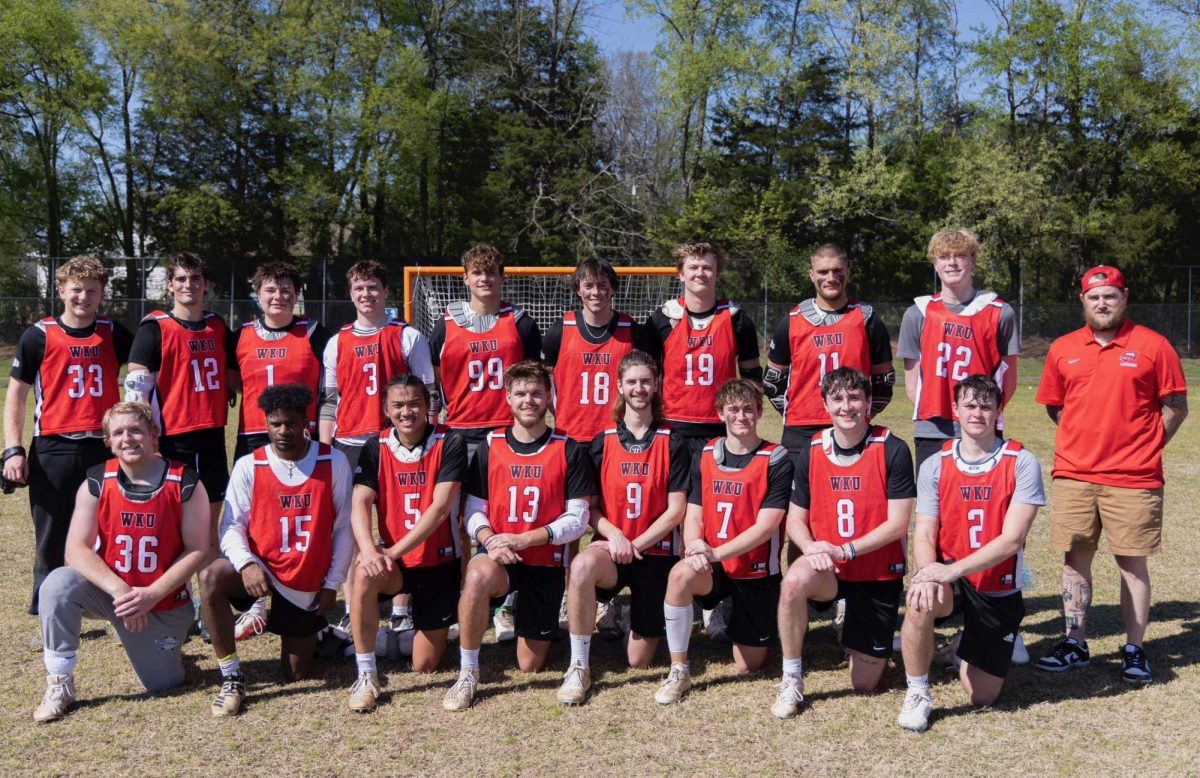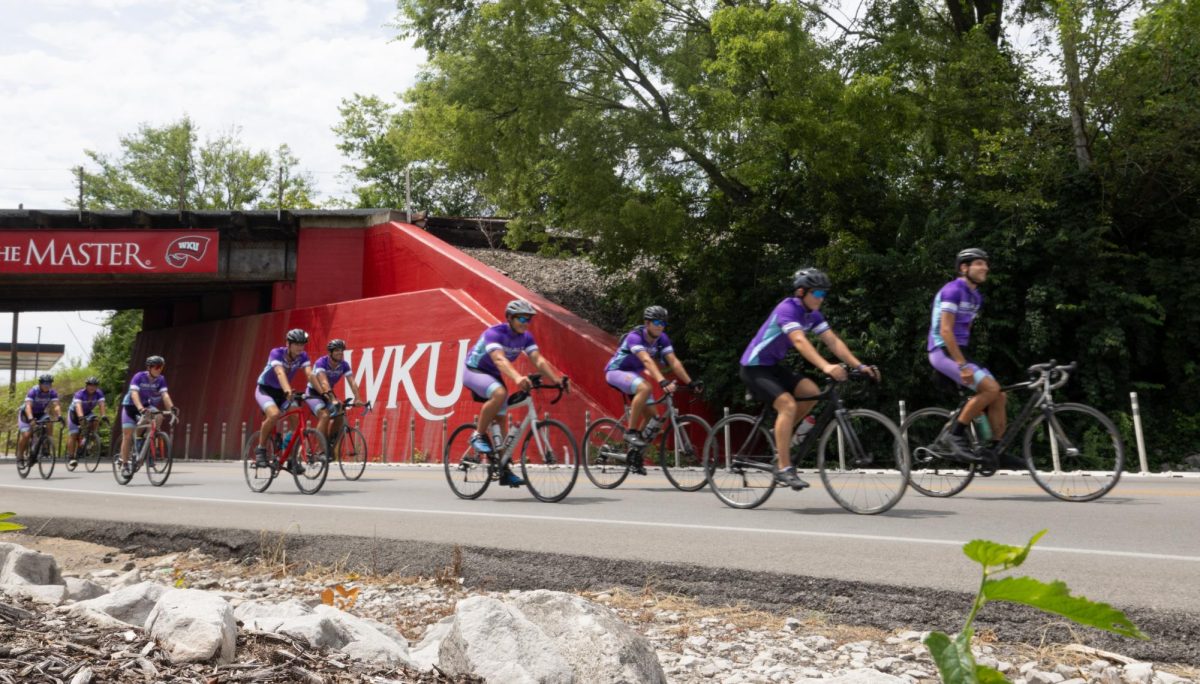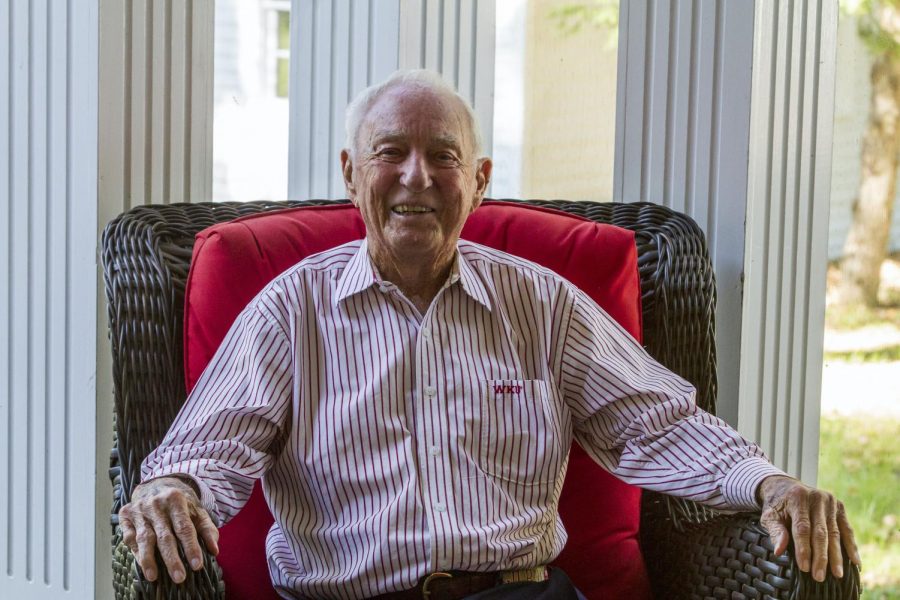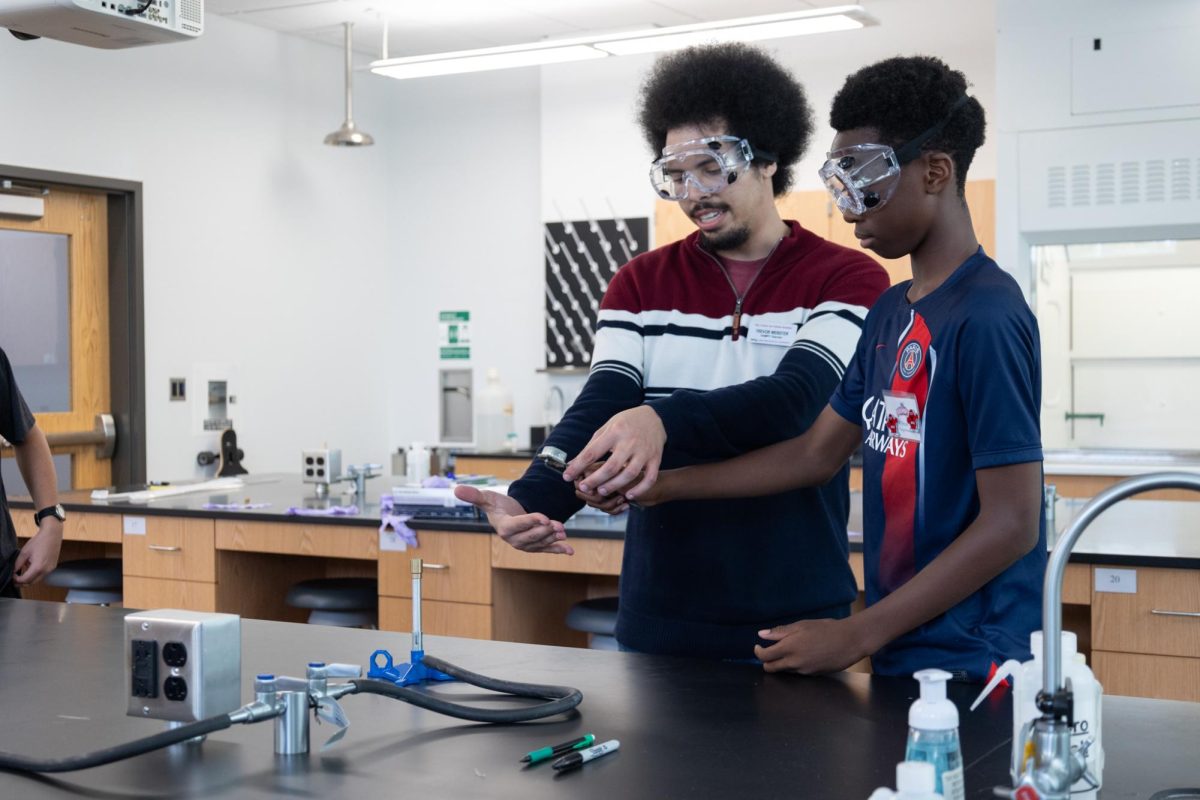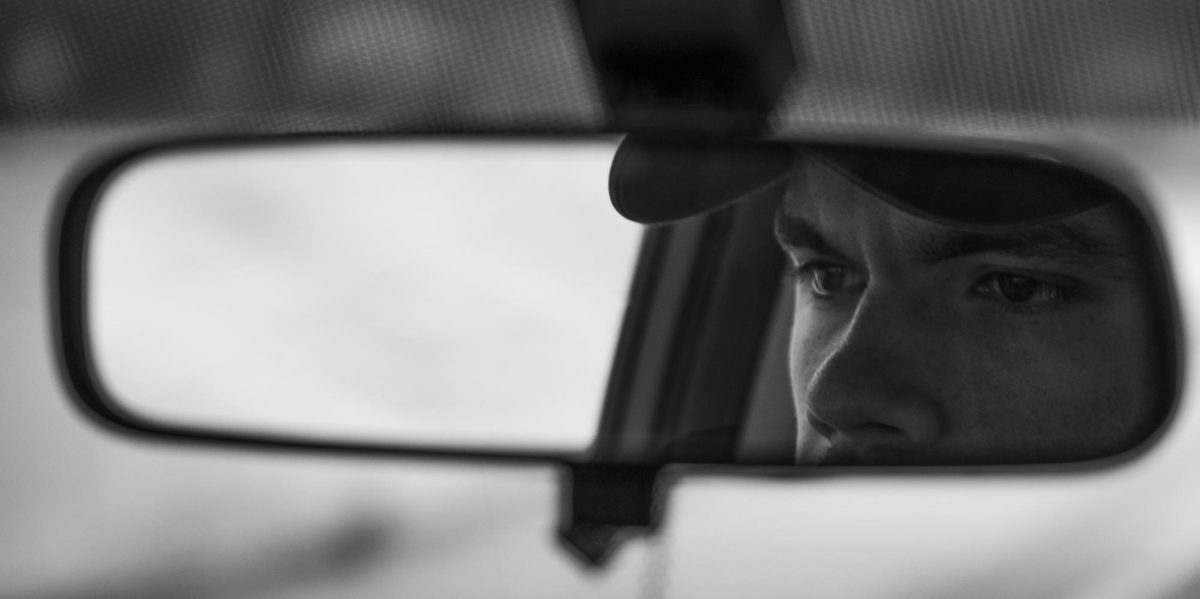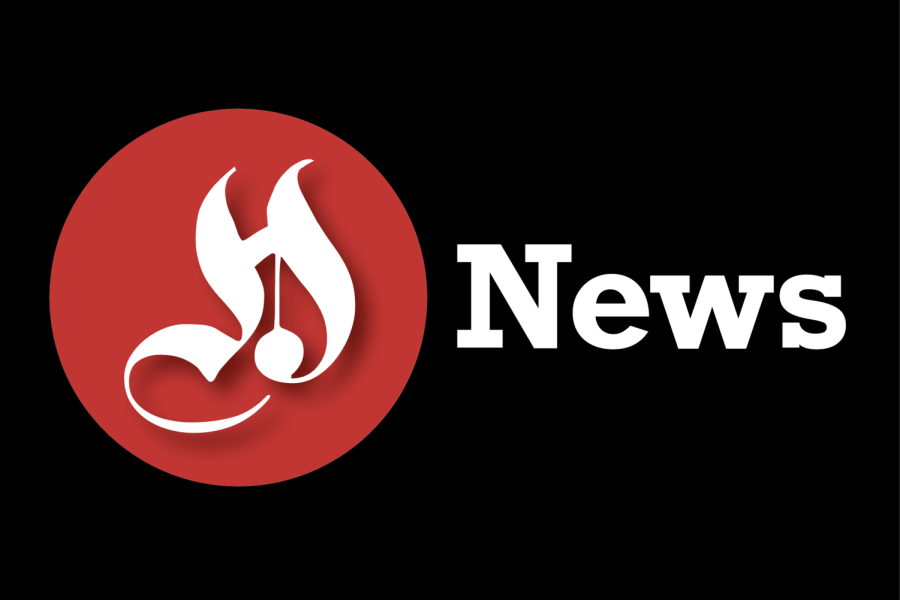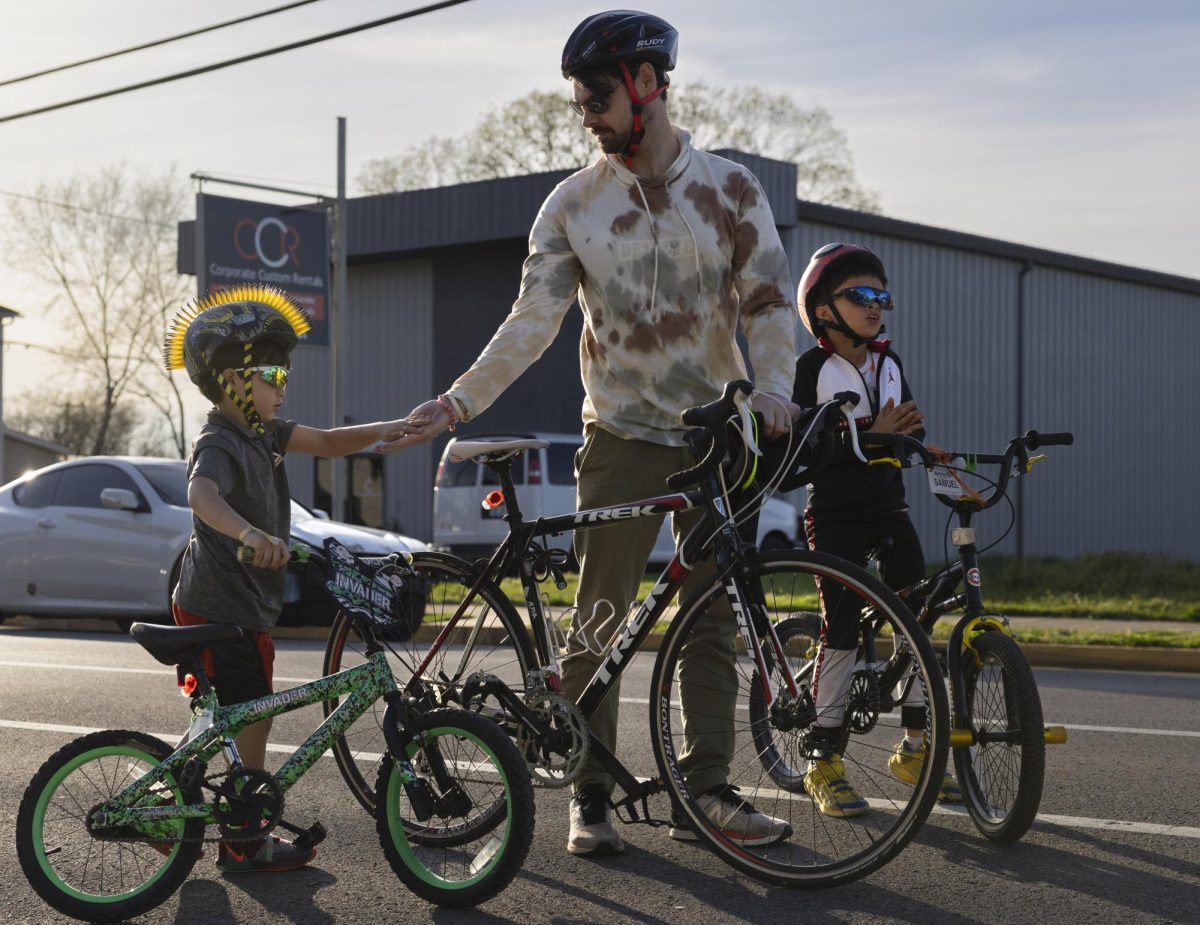Members of the WKU and Bowling Green community were able to learn about religious medical history at the WKU history department Lowell Harrison Distinguished Lecture on Thursday, Feb. 15.
Ronit Stahl, an associate professor of history at the University of California at Berkeley, was invited to present her research with a lecture titled “There’s Nothing Religious about an Appendectomy: The Complex History of Religious Hospitals in the United States.”
In her research, Stahl poses questions concerning the development of religious hospitals in the United States, what differentiates religious and non-religious hospitals and how government funding has played a role throughout.
“To answer this question about the proliferation of religious hospitals in the United States, we need to be attentive to certain developments over the past 125 years,” Stahl said, referring to a question of why religious hospitals are so prominent.
Katherine Lennard, WKU history associate professor and Frockt Family Chair, helped organize the event and said it was a good opportunity to bring interesting scholarship to the WKU community.
“Medical care is complicated. Accessing it is really hard for a lot of people for a lot of different reasons,” Lennard said. “She’s [Stahl] opening up to some really interesting ways of thinking about the history of hospitals just doing that work. So we are excited to get students thinking about an institution that affects their daily lives in ways that they might not imagine.”
The Lowell Harrison Distinguished Lecture is an annual event that honors the career of former WKU history professor Lowell Harrison. Lennard said that alongside the research of scholars in Bowling Green that students have the chance to access, it is exciting to feature work from across institutions and fields.
“We’re just super excited to bring this from across institutions, across fields, and to bring in a speaker who is doing exciting work elsewhere,” Lennard said. “It really helps us to get thinking, and help students to feel like, ‘Oh, there’s opportunities everywhere in the world’ … It just gives us all opportunities to think outside of our boxes.”
Stahl is also an associate of the Berkeley Center for Religion, the Center for Jewish Studies and the Center for Research on Social Change, and received her PhD in history from the University of Michigan. Much of her lecture surrounded the court cases, legal acts and opposing views of whether religious hospitals were truly religious.
Utilizing historical examples of religious hospitals, she explained the belief of some lawmakers that the presence of a church in a management role at a hospital did not convert the hospital “corporation” into a religious body.
“In other words, because a corporate charter said that this was an institution or corporation, created for the purpose of healing the sick, it wasn’t relevant that the people doing that work were Catholic sisters,” Stahl said, giving an example of a Catholic hospital.
She also discussed the former Norton Memorial Infirmary and Our Lady of Peace Hospital in Louisville, Kentucky.
“Here, the Kentucky Court of Appeals was raising the question of what exactly is a public hospital, what counts as public in the hospital domain and specifically, what counts as a public hospital when there are state funds involved,” Stahl said.
Stahl described the implications of her work through the large number of Christian and Catholic hospitals today, as Catholic healthcare is around a sixth of the U.S. healthcare system. She said “there are stakes in this” for all citizens for many reasons, primarily for potential care restrictions. But this isn’t limited to Catholic hospitals – recent reports have also paid particular attention to historically Protestant hospitals in the South.
“Religious restrictions on care have increased, and were increasing in the 21st century,” Stahl said. “These religious restrictions were not only about abortion or contraception. They’re also about things like in vitro fertilization, LGBT care and end- of- life care. They also affect information and referrals … Nevertheless, there are those who find that objectionable and there are those who find it desirable, both things can be true at once.”
Stahl said the history of religious hospitals is “complex and complicated,” partly because of the uncertainty of what a religious hospital is and answers from various perspectives.
“As a result, the history of religious hospitals raises big questions about the categories we use to describe the healthcare landscape, about the care people can receive in different kinds of hospitals, but also big fundamental questions about the role of religion in American public life and in American institutions,” Stahl said.
She then shared the need to think about these big relationships, between healthcare and religion and between patients, clinicians and hospitals, but also between religion and the state, and among the categories that describe U.S. healthcare.
“What history tells us is that they’re inherently unstable, that there’s nothing inevitable about the moment we’re in,” Stahl said. “But also to piece together the story, you have to assemble a lot of small pieces that may have happened concurrently, but weren’t necessarily happening in the same frame. That’s part of why this is such a complex history and also creates a complicated present.”
Editor-in-Chief Alexandria Anderson can be reached at [email protected].














